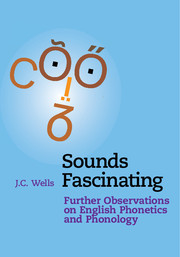20 - Language Mosaic
from PART IV - ROUNDUP
Published online by Cambridge University Press: 05 September 2016
Summary
Ndjuka
Most of the speakers of Ndjuka (also known as Ndyuka, Djuka, or Aukan) live in Suriname. Like Saramaccan, Ndjuka is an English-lexicon Creole spoken by Maroons (aka Bush Negroes) whose ancestors were shipped as slaves over three hundred years ago to work on English colonial plantations. Those who managed to escape fled deep into the rain forest, where they established communities along rivers in eastern Suriname and parts of neighbouring French Guiana.
Unlike the English-lexicon Caribbean creoles such as Jamaican and Trinidadian, spoken in what were until less than sixty years ago British colonies, Ndjuka and Saramaccan have been entirely out of contact with standard English for centuries. So whereas Jamaican Creole is spoken in a diglossic continuum extending from basilectal deep Creole to acrolectal Jamaican Standard English, Ndjuka is a free-standing language exhibiting approximately zero mutual intelligibility with English.
As with many sub-Saharan African languages, but not English, Ndjuka syllable structure allows for initial clusters of nasal plus plosive, as in the name of the language ndjuká and the word for ‘snail’, ŋkólá. The clusters kw and gw are alternatively pronounced as double-articulated k͡p, g͡b, as in gwé or gbé from English go away. Double articulation of plosives is a familiar feature of West African languages, as in the language name Igbo (Ibo).
Ndjuka is a tone language. There is a minimal pair na ‘is’ vs ná ‘isn't’. Vowel length is also distinctive. While báká means ‘back’, bákáa means ‘white man’ (compare Jamaican backra), and baáká means ‘black’.
Words of obviously English origin include fátú ‘fat’, bígí ‘big’, mófó ‘mouth’, tífí ‘tooth’, tápú ‘stop’, sinékí ‘snake’.
As We Were
Once upon a time, my children, before we had computers for word processing, we used primitive machines called typewriters.
I learnt to type almost at the same time as I learnt to write, because my father had a typewriter on which I spent many happy hours even before I was old enough to go to school. (I entered primary school in 1944.)
That was a mechanical typewriter, as was my own first typewriter, which I bought when a student, in 1959. (Electric typewriters were much too expensive for the likes of us.
- Type
- Chapter
- Information
- Sounds FascinatingFurther Observations on English Phonetics and Phonology, pp. 194 - 203Publisher: Cambridge University PressPrint publication year: 2016

